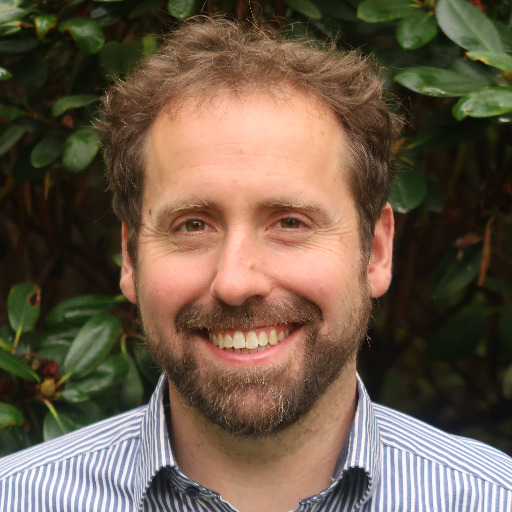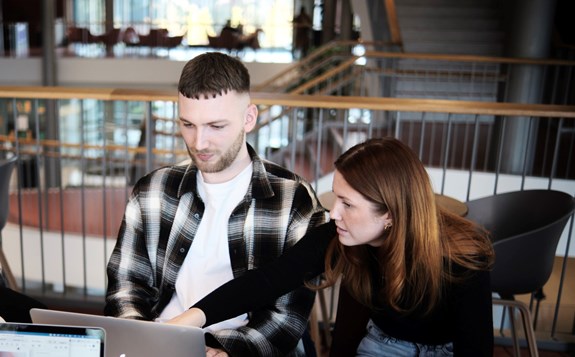
-
- Collaboration and Innovation
- Collaboration and Innovation
- Collaboration and external relations
- Innovation
- Support Malmö University(2)
Research group: AI Politics Hub
AI Politics Hub
We bring social science expertise to understand the politics – both past, present, and speculative future – of artificial intelligence in society. There is a need to better understand the challenges and possible solutions through which policymakers at national and global levels can ensure that the benefits of AI are fully utilised in the public interest.
About
The AI Politics Hub is hosted within the Department of Global Political Studies (GPS). We facilitates an inter-faculty research collaboration that since 2020 has developed into a growing list of research grants and taught courses. The hub is part of the Rethinking Democracy (REDEM) research platform at Malmö University, where AI has significant implications for the future of democratic society.
AI Politics Reading Seminar
Interested in discussing the politics of artificial intelligence technologies? As part of our collaborative learning, project participants and curious minds meet to present and debate key research and perspectives relevant to the themes of the politics of AI. If you want to participate, please contact Michael Strange.
Past seminars
- Session 1: 29th March 2022. Reading: König, P.D. and Georg Wenzelburger (2020) ‘Opportunity for renewal or disruptive force? How artificial intelligence alters democratic politics’, Government Information Quarterly (37).
- Session 2: 4th April 2022. ‘Promise and pitfalls of equating AI with cognition’, working paper by Jess Haynie-Lavelle.
- Session 3: 25th April 2022. ‘The Imperatives of Ethical AI’, working paper by Dennis Munetsi.
- Session 4: 9th May 2022. Pink, S., Ruckenstein, M., Berg, M. and Lupton, D. (2022) ‘Everyday Automation – Setting a Research Agenda’ (London: Routledge).
- Session 5: 17th June 2022. Zuboff, S. (2015). Big other: Surveillance Capitalism and the Prospects of an Information Civilization. Journal of Information Technology, 30(1), 75-89.
Research activities
Future Society & Democracy. Awarded grant by CEMES
We focus on the rapidly changing practices through which we live as societies– from automated decision-making that governs human life via algorithms, through new digitalisation that influences our socio-political organization and other new technologies that are increasingly influencing the way we consider what makes us human.
Future society & democracy, University of Copenhagen
Artificial Intelligence as an issue for Global Political Economy – actors, structures, constraints, and possibilities. Awarded workshop grant by the International Studies Association.
AI is typically presented as a technology-driven phenomenon in which humans are either the victims or beneficiaries. Yet, that narrative overlooks the complex transnational human relations structuring how that technology is produced, including whose data is being used and how, as well as the ownership and control of algorithmic systems used in large language and visual models, as well as automated decision-making.
AI and the Everyday Political-Economy of Global Health
WASP-HS Grant 10MSEK. Sole applicant: Michael Strange. It led to the recruitment of an associate senior lecturer and two PhDs with co-financing from Malmö University.
Artificial intelligence-based technologies are being rapidly developed and adopted for use in global healthcare, accelerated yet further during the COVID-19 pandemic. While there is enormous potential of AI applications in health, it is far from clear how best it should be regulated to avoid negative side effects. Health data and AI applications cross borders, but the capacity to regulate is still confined to the nation. Data ownership and development of algorithms, however, often exceed national borders. Healthcare itself is not easily regulated globally; the human body and the cultural norms through which we live are much more often thought of in national terms.
The research addresses the urgent need to better understand the challenges and potential solutions by which policymakers at the national and global levels can ensure the benefits of AI applications in health are fully realised in the public interest. Situated within the interdisciplinary ‘Precision Health and Everyday Democracy’ (PHED) network, the research focuses on two key aspects of the emerging governance structures on AI and health.
The first aspect is how institutional actors (such as states and international governmental organisations) are responding to emerging AI applications in health, and their relationship to private actors currently leading these developments.
Second, the project looks at the wider social context in which civil society, professional medical associations, but also everyday individuals relate to, and experience, these processes guiding the future of global politics.
To develop global institutional mechanisms by which AI can be used to achieve optimal outcomes for human health we need to straddle the gap between the everyday realm of the individual and the increasingly global reality of contemporary healthcare. The AI and the Everyday Political Economy of Global Health grant provides a bridge between the every day and the global’.
- Roundtable on Responsible Innovation and the education of future Al practitioners. 15th November 2023. Organised by the United Nations Office For Disarmament Affairs (UNODA) and SIPRI. Invited expert submission from Michael Strange.
- ‘Criticality and AI Studies’ panel at the WASP-HS Annual Conference, 14th November 2023. Panel chaired by Katherine Harrison, Associate Professor at the Department of Thematic Studies at Linköping University, invited presentation by Michael Strange on critical approaches to categories in AI.
- Can AI be trustworthy if we don’t understand it? The example of healthcare as both a high-trust and high-risk field for AI adoption. Trust and AI Workshop. 14th November 2023.
- Digital Afterlives. Invited lecture to the students at Spyken Gymnasium, Lund. 28th November 2023.
- Hållbar AI för mindre företag - DigIT Hub AI fika-till-fika works 18th April 2023. Presentation by Michael Strange ’Hur påverkar man AI om man inte är Elon Musk?’
- ’AI and Society’, presentation to the teachers at Spyken Gymnasium, Lund. Invited talk to discuss the impact of AI on society and morals. 16th November 2022.
- ’Participation + Artificial Intelligence’. November 15th, 2022.@STORM, Malmö University. Collaborative workshop with researchers and the private sector.
- ‘The participation paradox in the politics of AI’, workshop organized by Michael Strange as part of the WASP-HS Community Reference Meeting on ‘Challenges and Opportunities of Regulating AI’. May 19th Included Malvika Sharan, The Turing Institute, UK; Pedro Sanches, Umeå University, Sweden; Sunny Dosanjh, Deloitte MCS Limited, UK; Aleks Berditchevskaia, NESTA, UK; Henrik Björklund, Umeå University, Sweden; Birgit Schippers, University of Strathclyde Glasgow, UK; Rachel Foley, DeepMind, UK/USA; and Ratidzo Njagu, Kunashe Foundation, Zimbabwe.
The WASP-HS summary can be found here (pdf)
- ’The future(s) of AI and health in the Nordic region’, presentation by Jason Tucker and Michael Strange. Collaborative Future-Making seminar. 5th April 2022.
- ‘Is AI creative or a tool for creativity, and how can it help us out of environmental and social predicaments?’ Keynote for MediaEvolution in a side-event of The Conference, Final seminar and book launch of the futures of AI for sustainability collaborative foresight cycle, April 2022 @ FOJAB.
- ‘What does AI mean for the future of democracy?’, International Conference of the Geumgang University (“Artificial Intelligence, Public Policy, and Humanity Education”) on the Occasion of its Founding of the Institute for Public Policy Studies, June 2021.
- ‘Automating imagination’, seminar with Sridhar Mahadevan (Director, Adobe Research) 12th April 2021. Collaborative Future-Making.
Research projects
Funder
Part of the WASP-HS research programme
Part of the WASP-HS research programmeThe Wallenberg AI, Autonomous Systems and Software Program - Humanities and Society (WASP-HS) is a ten-year research programme running from 2019-2028.
Nordic Fabulation Network
Nordic Fabulation NetworkA network exploring collaborative design through Fabulation (Haraway, 2013).







